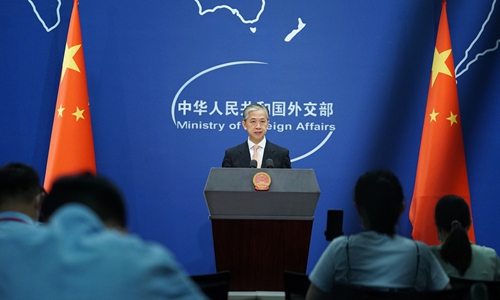
Wang Wenbin, spokesperson of China's Foreign Ministry Photo: VCG
The accusation that Huawei eavesdropped on the Netherlands' telecom service provider KPN's mobile subscribers is baseless, and people should reflect on the real purpose of such repeated allegations, a spokesperson of the Chinese Foreign Ministry said on Tuesday.
In a report that was compiled by the CapGenimi consultancy in 2010 but unveiled recently, the consultancy said that Huawei has had unlimited access to phone calls made using KPN networks. Those affected would have included former Prime Minister Jan Peter Balkenende, the BBC reported.
"Some countries and people have been groundlessly attacking Chinese enterprises on the grounds of "national security" and ideology, with some even making up lies and smears, which shows that they are trying to maintain their monopolistic position by cracking down on market competitors," Wang Wenbin, spokesperson of the Chinese Foreign Ministry, said Tuesday.
Citing some stories and figures about Huawei, Wang said that Huawei has built more than 1,500 mobile networks in more than 170 countries and regions, and it has provided services to 228 of the top 500 telecom operators in the world. It has covered more than 3 billion people in the past 30 years. But there have been no cybersecurity incidents or cases of eaves-dropping.
Huawei has publicly shown its willingness to sign "no-backdoor" agreements with other countries or build cybersecurity assessment centers to receive third-party investigations.
"There has been no other company so far that would make such a brave promise. And there has been no country, nor any company or people, that could provide concrete evidence that Huawei has threatened their security," Wang added.
"Every country should try to outlaw discrimination against nations in the high-tech sector just the same as they outlaw racial discrimination, to safeguard the market principle of fairness," Wang added.

